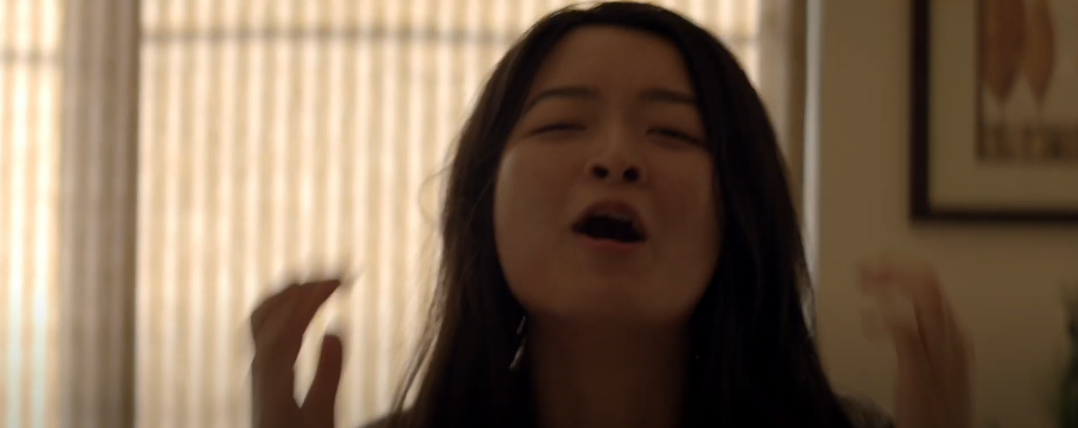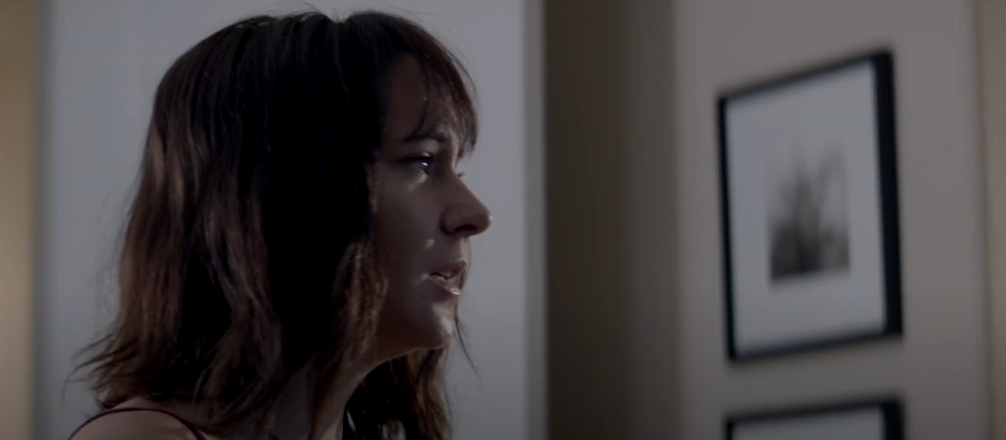Rich Mallery’s Sinful is a tense, if flawed, crime-thriller that explores the dark aftermath of a violent act and the psychological unraveling of a young couple. Newlyweds Remy and Salem find their honeymoon abruptly cut short after committing a gruesome crime, forcing them to hide out in a mysterious house as an unsettling darkness creeps in. At just 1 hour and 15 minutes, the film packs a lot into a tight runtime, but not always with the polish or clarity one might hope for.
On the positive side, the concept itself is intriguing—a “one-room” thriller where a couple’s secrets and guilt are meant to fester alongside the oppressive atmosphere of the house. Mallery, who impressed with Maid Droid and We Are Wolves, shows flashes of that same inventive energy here. There are moments where Salem’s character shines, particularly in casual interactions, and the suspenseful premise keeps the viewer curious about what horrors may unfold. The film’s brevity also works in its favor, preventing the story from overstaying its welcome.
However, execution issues are noticeable. The acting, especially from Remy’s actor, sometimes fails to convey genuine emotion, and many of the film’s screaming or panic-driven moments feel overblown or unconvincing. Similarly, while Salem has stronger scenes, her emotional backstory doesn’t land as effectively as it could. The editing and camerawork also undermine tension: suspenseful moments are weakened by awkward angles, poor body-acting, and shots that favor symmetry over emotional impact. In several instances, a crucial moment of struggle or terror simply doesn’t register because of how the scene is framed.
From a production standpoint, it’s clear this is a low-budget effort, likely influenced by COVID-19 restrictions, with a minimalistic approach to location and lighting. While some may find this “closet cosplay” style charming, it occasionally feels more like a constraint than a deliberate aesthetic choice. Subplots, like Tyler’s character, feel underdeveloped and leave one wanting more depth or screen time. Additionally, for a movie billed in part on sexual tension, it leans surprisingly tame—though there are multiple love scenes, nudity is mostly absent.
Ultimately, Sinful is a film of contrasts. It doesn’t quite reach the heights of Mallery’s previous work, and the execution is uneven, but there’s a raw, experimental energy that makes it worth a look—especially for fans of indie, low-budget thrillers. Think of it as a “gay bad free movie” that’s more interesting than its poster or premise might suggest. For viewers willing to forgive some rough edges, it delivers a suspenseful, if occasionally awkward, ride.
Jessie Hobson



